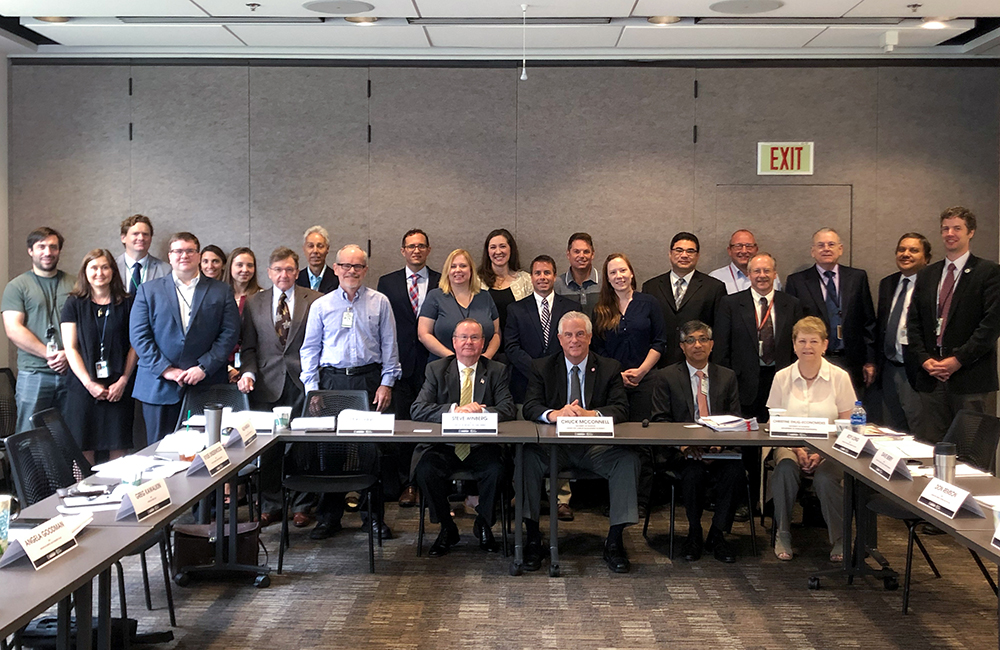UH Delegation Visits National Energy Laboratory in Pittsburgh By Charles McConnell

Representatives of the University of Houston discussed some of the University’s key energy initiatives during a recent daylong exchange with executives from the Department of Energy’s National Energy Technology Laboratory (NETL).
NETL is a national laboratory dedicated to the advancement of technologies in oil, gas and coal to promote the safe, reliable, cost effective and environmentally responsible generation of energy in the US and the world. The all-day event was an opportunity to boost communication and collaboration in key areas of research between UH and NETL.
Ramanan Krishnamoorti, chief energy officer at UH, and Charles McConnell, energy center officer of the Center for Carbon Management in Energy at UH, led the University delegation, meeting with Steven Winberg, assistant secretary of energy for fossil energy in the Department of Energy, and NETL executive Jared Ciferno, along with other experts at the national lab.
Topics of discussion included carbon management technologies such as carbon capture, utilization and storage, or CCUS, enhanced oil recovery and the safe and permanent storage of carbon dioxide in geologic formations, as well as converting carbon dioxide and methane to commercial products such as chemicals and fuels.
The group also was interested in learning more about the Subsea Systems Institute, a multi-institution research organization led by UH and funded by the RESTORE Act. It focuses on improving offshore safety and training.
Other UH faculty participating in the meeting included Christine Ehlig-Economides, Hugh Roy and Lillie Cranz Cullen Distinguished University Chair in Petroleum Engineering; Michael Harold, chair of the Department of Chemical and Biomolecular Engineering; and Arthur Weglein, Hugh Roy and Lillie Cranz Distinguished University Chair in Physics.
Other topics discussed included the roles of data science, robotics and artificial intelligence in energy. The NETL team complimented UH’s collaborative approach to energy topics, including its focus on working in multidisciplinary teams to address market challenges and working with industry and other stakeholders.
The goal of the UH delegation was to share the university’s capabilities while learning about NETL and the potential for future collaborations.
A follow-up meeting is planned, this time at UH.